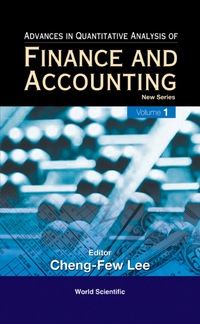Question
(A.) Facts Henry and Frances Hills, taxpayer-appellees, own a vacation home near Dahlonega, Georgia. About April 1, 1976, a thief disturbed the solitude of their
- (A.) Facts
Henry and Frances Hills, taxpayer-appellees, own a vacation home near Dahlonega, Georgia. About April 1, 1976, a thief disturbed the solitude of their secluded retreat, causing a loss of $760. Though the loss was insured, the taxpayers chose not to file a claim under their policy.2 Instead, the taxpayers claimed a casualty loss deduction on their 1976 federal income tax return.3
- (B.) Procedural History and Decision Below
The taxpayers' return was audited and the Commissioner issued a Notice of Deficiency. The taxpayers, now aggressively trying to prevent economic loss, appealed to the Tax Court. This was also a case of first impression for the full Tax Court.4 In a fine, thoughtful opinion reviewed by the full court,5 Judge Nims diverged from prior judicial treatment and allowed the deduction.6 The Tax Court assumed the existence of a loss and dealt primarily with whether the loss was compensated by insurance or otherwise within the meaning of section 165(a). Relying on the clear statutory language and limited legislative history, the court held the taxpayers' loss was not compensated. The court further held that this loss was not caused by the taxpayers' election not to file any insurance claim, and so was not precluded by the limitations on deductions for personal, nonprofit-seeking losses contained in section 165(c).7 We affirm.
- (C.) Arguments on Appeal
On appeal the Commissioner strongly [pg. 82-6072]urges that section 165 calls for a two-part analysis: one must first determine if there has been a loss, and only then consider whether the loss has been compensated by insurance or otherwise.8 The Commissioner does not deny the Tax Court's view that the economic detriment here was not compensated by insurance or otherwise; rather, he claims that these facts do not meet the first statutory requirement of a loss.
The Commissioner advances three arguments for the position that the taxpayers did not suffer a deductible loss. First, he argues that section 165(a) requires a taxpayer to pursue all reasonable possibilities of recompense before an economic detriment is considered a loss. Because the taxpayers did not file an insurance claim, they did not undergo a loss. Second, he revives the argument rejected by the Tax Court that this loss was caused by the taxpayers' election not to file a claim, and so is not a personal loss of the sort section 165(c) makes deductible. Finally, the Commissioner argues that the economic detriment suffered by the taxpayers was in substance nothing more than a nondeductible insurance premium. We shall review the Tax Court's holding regarding compensation, and then consider each of the Commissioner's arguments in turn.
Please write
Case law Possible deduction if no insurance claim Based on the case and code Section 165
Also, Summary of the case:
The case is: Henry L. and Frances O. Hills, Respondents, v. Commissioner of Internal Revenue, Petitioner, 691 F.2d 997 (11th Cir. 1982)
Step by Step Solution
There are 3 Steps involved in it
Step: 1

Get Instant Access to Expert-Tailored Solutions
See step-by-step solutions with expert insights and AI powered tools for academic success
Step: 2

Step: 3

Ace Your Homework with AI
Get the answers you need in no time with our AI-driven, step-by-step assistance
Get Started


